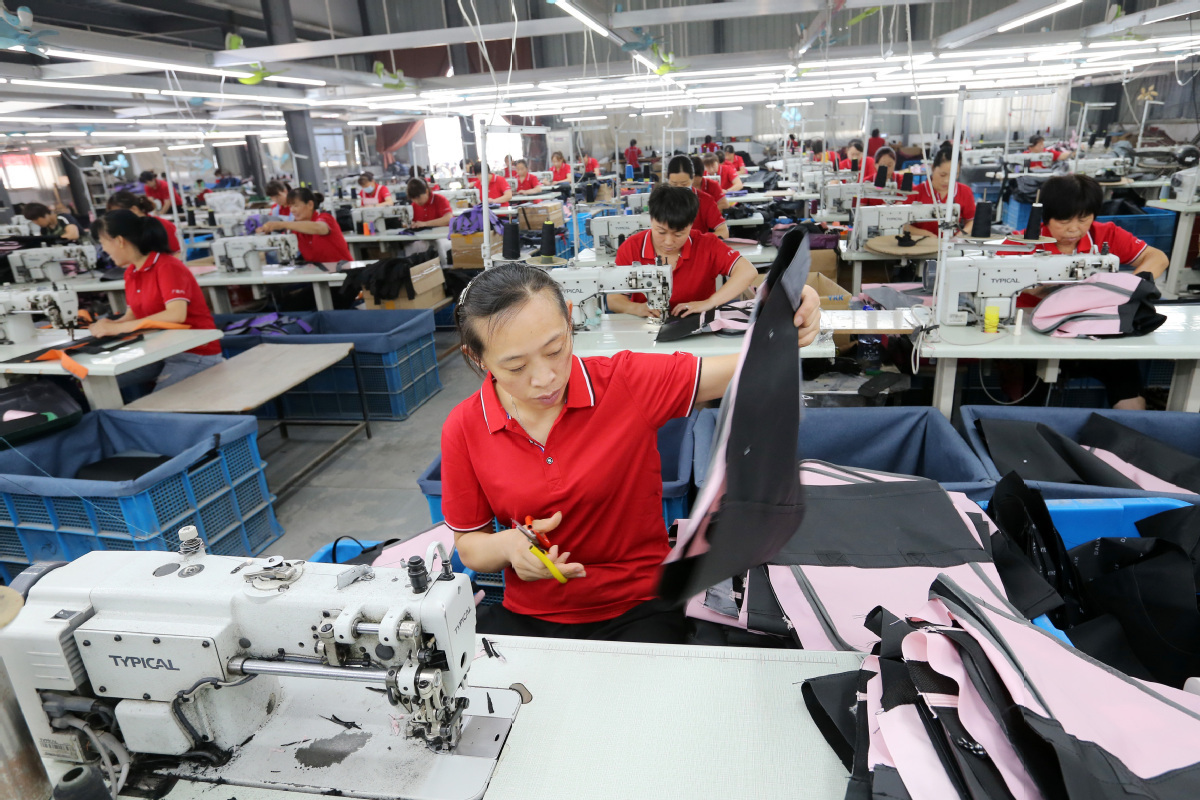Employment a key to assist impoverished
Securing employment is not only benefiting people's livelihoods, but is also playing a strong role in the nation's poverty alleviation work, senior officials said at a news conference organized by the State Council Information Office on Thursday.
Securing employment is not only benefiting people's livelihoods, but is also playing a strong role in the nation's poverty alleviation work, senior officials said at a news conference organized by the State Council Information Office on Thursday.

Migrant women work at sewing machines in a local factory in Huaibei city, Anhui province, on July 15, 2020. [Photo provided to China Daily]
Li Zhong, vice-minister of the Ministry of Human Resources and Social Security, said at the conference that employment-driven poverty alleviation work has become a vital element in the nation's employment-first policy and has made significant progress over the past five years.
Figures from the ministry show that over 90 percent of the nation's impoverished people have received assistance from the government since 2016.
The government has also helped set up about 33,000 workshops in poverty-stricken areas in an effort to ensure sustainable development, with 410,000 team leaders produced at those workshops.
Those leaders then went on to set up 214,000 businesses, helping lure more impoverished workers.
Impoverished people who are less competitive in the job market are also included in the government's campaign.
Since 2016, the government has created roughly 4.96 million welfare jobs, which are usually reserved for disabled people or older workers.
These jobs include cleaning work, security guard service or working in a nursery.
"We've optimized the whole system. For those businesses owners, we give them allowances and preferential policy support once they recruit impoverished workers," Li said.
"We've also reduced taxes and provided financial support to encourage people in poverty to start their own businesses. For those who have welfare jobs, we offer training courses and buy them health insurance, and we give their children priority to study in vocational schools to help lift them out of poverty."
Li said that cross-provincial cooperation is also encouraged to help laborers from poverty-stricken areas find work, especially those from extremely poor areas and the 52 counties that have yet to be lifted out of poverty.
For example, the ministry has called on six provinces and cities, including Shanghai and Guangdong province, to help poverty-stricken areas in Hubei province.
According to the ministry's latest figures, there are nearly 2 million laborers from Hubei working in those six provinces and cities, accounting for 75 percent of Hubei's population of migrant workers.
"Cross-provincial cooperation is significant in the employment-driven poverty alleviation work," Ou Qingping, deputy head of the State Council Leading Group Office of Poverty Alleviation and Development, said at the conference.
"Usually, the eastern provinces-which have stronger economies and manufacturing-offer vacancies, and provinces in central or western China organize their laborers, including those impoverished workers, to join these campaigns," he said.
He took southern Guangdong as an example. The province has recruited the most workers from poverty-stricken areas so far this year-around 3.87 million.
Li said that as the fight against poverty nears its end, the government will strengthen its efforts to stabilize the job market and create more jobs for impoverished people.
"Working is the most effective way to shake off poverty, and we will endeavor to shore up the progress we've made and step up efforts to make up for losses resulting from the coronavirus pandemic," said Li.

